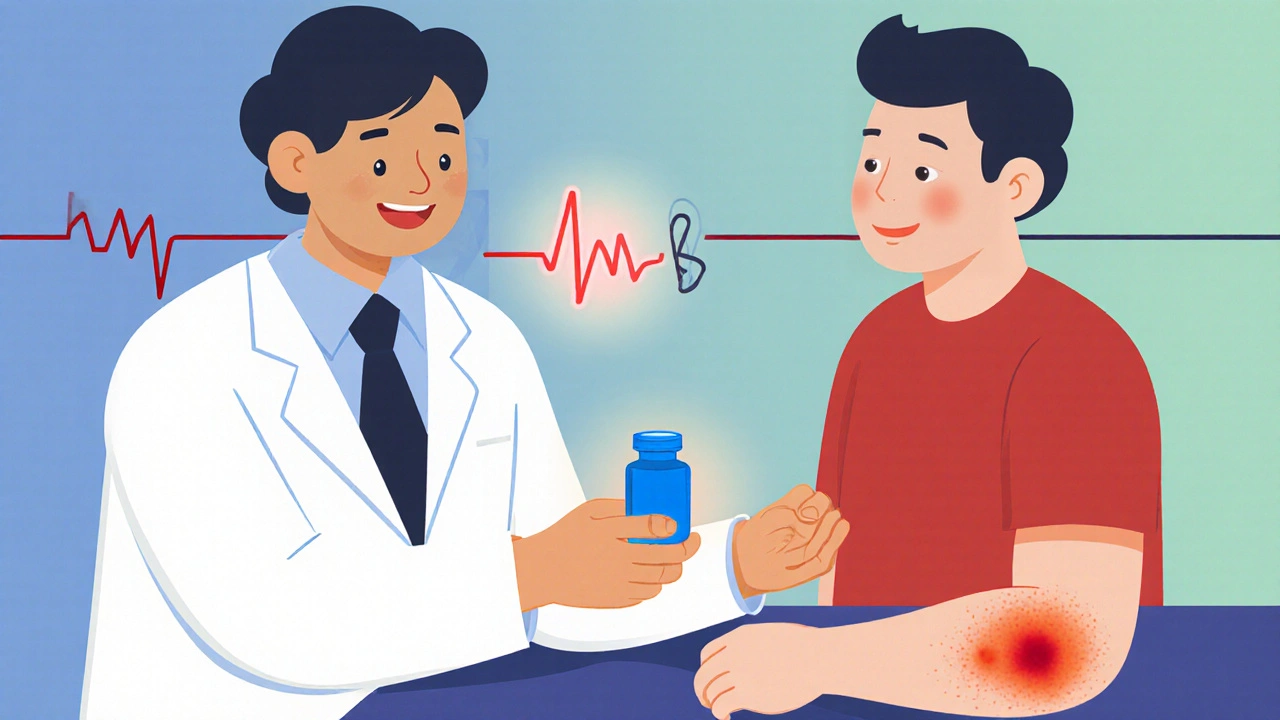Beta-blockers: What They Do and How to Use Them Safely
Beta-blockers are a group of medicines that slow your heart and lower blood pressure. Doctors prescribe them for high blood pressure, angina, some heart rhythm problems, heart failure, and after a heart attack. They also help with migraine prevention, tremors, and anxiety in some people. Knowing how they work and what to watch for makes taking them safer and more effective.
These drugs block beta receptors in the heart and blood vessels. That reduces the force and speed of heartbeats and narrows the body’s response to stress hormones. Common names you might hear are metoprolol, atenolol, propranolol, and bisoprolol. Some beta-blockers act mainly on the heart; others affect more parts of the body. Your doctor picks one based on your condition and your other medicines.
Common side effects and warnings
Side effects can include tiredness, cold hands or feet, slow heartbeat, and dizziness. If you have asthma or severe lung disease, some beta-blockers can make breathing worse. People with diabetes should be careful: beta-blockers can hide signs of low blood sugar, like a fast heartbeat. Don’t stop them suddenly — stopping quickly can trigger a fast heart rate or chest pain. If you feel faint, very short of breath, or notice swelling, contact your doctor right away.
Practical tips for using beta-blockers
Take your dose at the same time each day. If your doctor says take it with food, do that — it can reduce stomach upset. Keep a list of all medicines and supplements you use; beta-blockers can interact with some drugs like calcium channel blockers, certain antidepressants, and medications for diabetes. If you plan surgery or dental work, tell the medical team you’re on a beta-blocker. If you miss a dose, take it when you remember unless it’s almost time for the next one — don’t double up.
Monitoring helps. Regular blood pressure and pulse checks show if the drug is working or causing too slow a heartbeat. Your doctor may ask for blood tests or heart checks depending on your situation. For conditions like heart failure, dose changes are gradual and supervised. Pregnant or breastfeeding people should discuss risks and alternatives with their clinician — some beta-blockers are safer than others in pregnancy.
Alternatives exist. If beta-blockers cause problems, doctors can switch to ACE inhibitors, ARBs, calcium channel blockers, or other treatments depending on the reason for therapy. Lifestyle steps — salt reduction, regular exercise, weight control, and quitting smoking — also lower blood pressure and reduce the need for higher doses.
If you have questions about a specific beta-blocker or worry about side effects, ask your pharmacist or doctor. Bring up symptoms like dizziness, breathing trouble, fainting, or muscle weakness. With the right choice and simple precautions, beta-blockers can be a safe, effective part of treatment for many heart-related conditions.
Keep copies of prescription details and the reason for the drug in your phone. That helps emergency teams and makes refills easier. If a new symptom starts after a dose change, note when it began and report it at your next visit.
Beta-Blockers and Psoriasis: Why They Can Spark Skin Flares
Explore how beta‑blockers can trigger psoriasis flares, which drugs pose the highest risk, and steps to manage skin symptoms safely.
Exploring 8 Alternatives to Inderal in 2025
With Inderal's brand name discontinued in the U.S., finding suitable alternatives is essential for individuals using propranolol. This article delves into eight alternative medications available in 2025 that can offer similar benefits for conditions like hypertension, migraines, and more. Whether you're considering a different beta-blocker or looking into other classes like calcium channel blockers and CGI inhibitors, this guide reveals pros and cons for each option. Dive into this comprehensive comparison to understand which medications might suit your medical needs.


